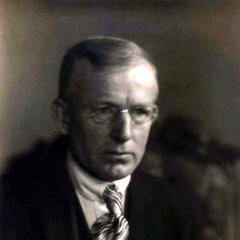William Hazlitt Quotes - Page 15

William Hazlitt (1826). “The plain speaker: opinions on books, men, and things [by W. Hazlitt].”, p.364
William Hazlitt (2015). “Delphi Collected Works of William Hazlitt (Illustrated)”, p.1466, Delphi Classics
I do not think there is anything deserving the name of society to be found out of London.
William Hazlitt (2015). “Delphi Collected Works of William Hazlitt (Illustrated)”, p.1227, Delphi Classics
William Hazlitt (2015). “Delphi Collected Works of William Hazlitt (Illustrated)”, p.1118, Delphi Classics
"Shakespeare Jest Books, Conceits, Clinches, Flashes and Whimzies", No. 86, as quoted in Hoyt's New Cyclopedia Of Practical Quotations, p. 705-06, 1922.
William Hazlitt (1839). “Sketches and Essays”, p.69
The diffusion of taste is not the same thing as the improvement of taste.
William Hazlitt (2015). “Delphi Collected Works of William Hazlitt (Illustrated)”, p.344, Delphi Classics
Characteristics 35
William Hazlitt (2015). “Delphi Collected Works of William Hazlitt (Illustrated)”, p.1482, Delphi Classics
A man who is determined never to move out of the beaten road cannot lose his way.
William Hazlitt, Leigh Hunt (1817). “The round table: a collection of essays on literature, men, and manners, by W. Hazlitt [and J.H.L. Hunt].”, p.169
William Hazlitt (1837). “Characteristics: in the manner of Rochefoucault's Maxims [by W. Hazlitt].”, p.139
William Hazlitt (1848). “The Miscellaneous Works”, p.7
William Hazlitt (1841). “Lectures on the English Comic Writers”, p.23
William Hazlitt (2008). “Liber Amoris and Related Writings”, Carcanet Press
William Hazlitt (1845). “Table Talk: Opinions on Books, Men, and Things”
Pride erects a little kingdom of its own, and acts as sovereign in it.
William Hazlitt (1871). “The Round Table. A collection of Essays ... By W. H. and Leigh Hunt”, p.468
Grace is the absence of everything that indicates pain or difficulty, hesitation or incongruity.
William Hazlitt (1871). “The Round Table. A collection of Essays ... By W. H. and Leigh Hunt”, p.101
William Hazlitt (2015). “Delphi Collected Works of William Hazlitt (Illustrated)”, p.2003, Delphi Classics
William Hazlitt (1821). “Table-talk: Or Original Essays”, p.213
William Hazlitt (1904). “The Collected Works of William Hazlitt: Fugitive writings”
William Hazlitt (1848). “The Miscellaneous Works”
William Hazlitt (2015). “Delphi Collected Works of William Hazlitt (Illustrated)”, p.1484, Delphi Classics






